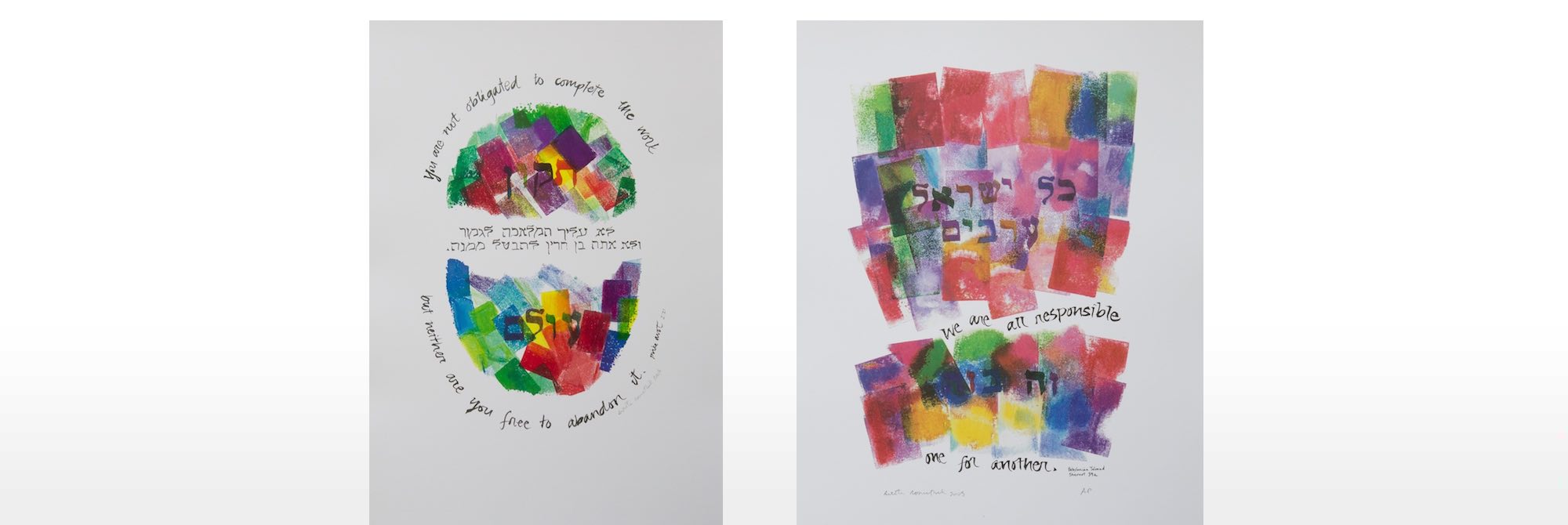Tikkun Olam: Repairing the World, One Sale at a Time
Reflections on Goods for the Soul By Jay SchecterOriginally found in the Mishna and viewed as a social policy to ensure safeguards for the disadvantaged, the concept of “Tikkun Olam” has been refined throughout the generations.* Jewish mysticism views tikkun olam as a way for individuals to counterbalance the evil in the world by performing restorative good deeds, in turn restoring the world to its holy state. This ideal of individual responsibility as seen by Kabbalists endures in a concrete way. Whether by following the commandments or embracing the concepts of justice and righteousness, tikkun olam imposes upon the individual the obligation to improve not only one’s own life but also the lives and conditions of all mankind. We cannot simply look to the Almighty to address and solve issues we face today; the individual must take his or her own affirmative action. There is no better time than the period between Rosh Hashanah and Yom Kippur, the most contemplative and soul-searching period in the Jewish calendar, to look critically at what we have done in the past and how we can weave tikkun olam into our daily lives going forward.
So, how does this relate to Karen and me and what we are doing both on the web and here, in our flagship gallery in Mount Kisco, New York? We of course want to be successful in this venture. But how have we defined success? We knew that we wanted this business to be different: we want to inculcate our values of tzedakah, with a goal of making a difference – no matter how large or small – and to help in repairing the world. Our view of tikkun olam is very much in line with the original Mishna’s interpretation of helping to safeguard the disadvantaged. In addition, the ideals of fairness, openness and justice are also an integral part of what we hope to achieve.
As we say on our website, we see one of our roles as helping to bring together those who have and appreciate the great gift of creativity and to honor our artisans and clients by treating them with respect and true understanding. But that, in our opinion, is not enough. Our business ethos, as I said above, includes the need to take action which address at least some of the fundamental unfairness that exists in the world. For this reason, the products we offer are ethically sourced and fairly traded, whether through independent certification or because we personally know who makes our products, where they come from and how they are made. Through these steps, we hope to make a difference. Our awareness as to how to achieve our goals has been informed by the Fair Trade Judaica movement. For that organization and its guidance, we are truly grateful.
Further, we want our tagline “goods for the soul,” to be more than just a tagline. Our goal is to enable and empower artisans around the world to be creative and have a market for their creations. Through this process, we hope to make the human condition just a little bit better. We have seen how enabling the creative process and empowering the creators leads to better care and education for many, thereby making the world a little smaller and bringing us all closer together. And, on the consumer side, we have seen how the right purchase can bring smiles and laughter; we strive to make certain that the entire experience is one of joy, laughter, emotion, and spirituality.
As we are immersed in prayer and self-reflection during this High Holiday season, may we all hear the sound of the Shofar as a call to action for each of us to do all in our power to improve the lives of all people everywhere.
Gmar Hatima Tova.
*For a historical discussion of tikkun olam, see http://learningtogive.org/papers/paper169.html





